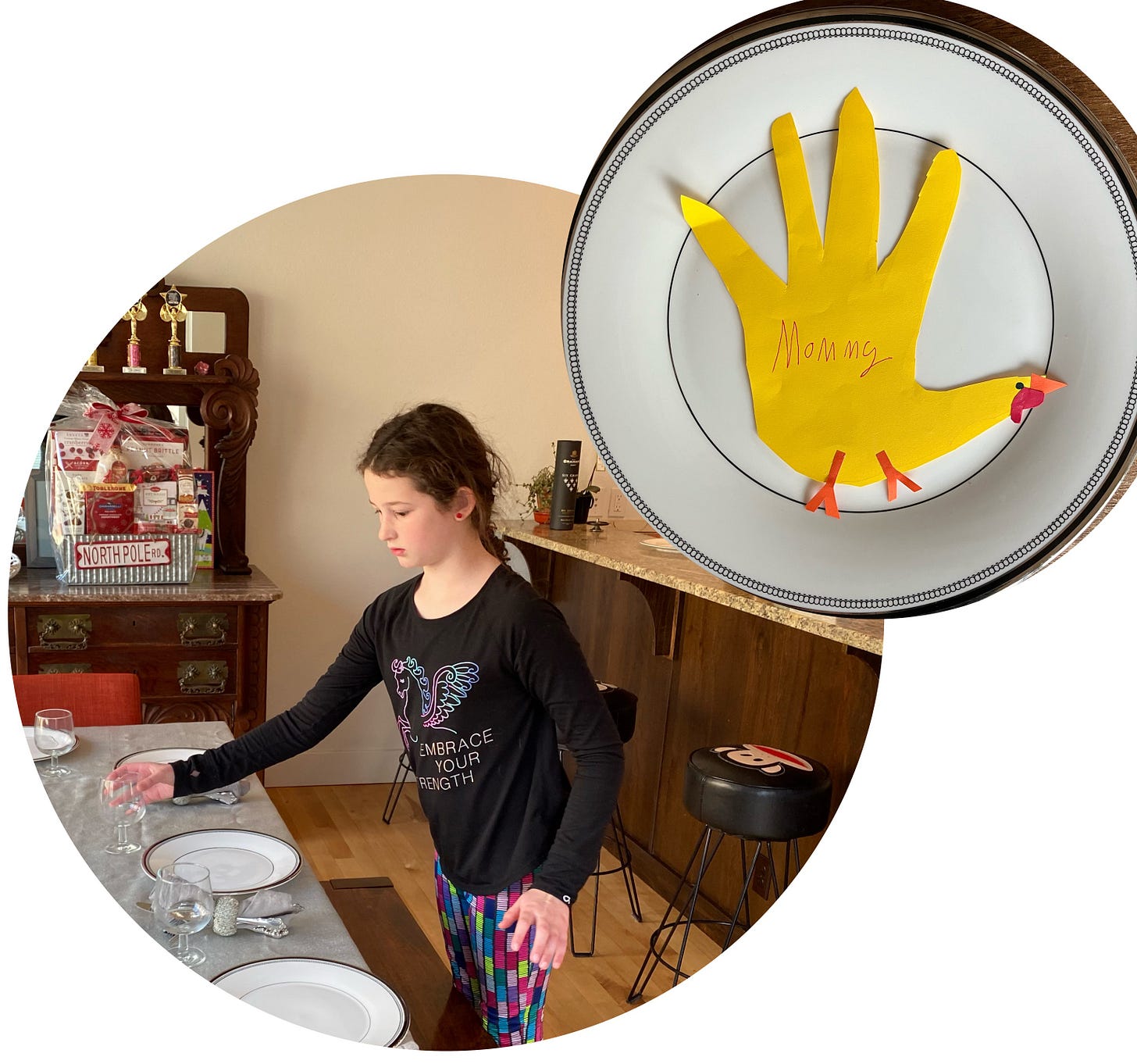A Neurodivergent Family Thanksgiving
“That men do not learn very much from the lessons of history is the most important of all the lessons that history has to teach.” - Aldous Huxley
Family was always extremely important to Maisa. She spent her last summer earthside doing deep dives into genealogy, researching family history and building a family tree. I have spent plenty of time trying to learn about our family history on my own, but she was able to dig up some things that surprised even me. Her discoveries might explain why some of my requests for family stories throughout the years have been repeatedly rebuffed. Hers were too, much to her dismay and mine.
It is really interesting to talk about having Thomas Jefferson and Abraham Lincoln in your family tree, but like most humans, they were complex and multifaceted individuals. Not all of their lives made it into the history books. What happens when we omit or hide parts of people? Parts of history? Parts of ourselves?
Many of us will gather around a table with family today. Some of us will pretend like holidays don’t exist. Both are valid. However, when we deny parts of ourselves and parts of our stories, we miss out on a chance to learn something. We cannot learn from mistakes if we refuse to acknowledge them. History may be written by the victors, but that doesn’t make the other parts of the story go away. In spite of what we were taught in school, Thanksgiving was not a beautiful Happy Mealᵀᴹ between colonizers and Native Americans. Its history, like most stories, is more complex, and much of it is dark.
Maisa loved Thanksgiving, cooking, and family meals. She would help plan the menu, set the table and look forward to having everyone together. She liked to add personal touches by adorning the table with something handmade or a special piece of her artwork. She would often do this for our family Sunday night dinners as well. I would sometimes cringe at the fact that she would want to get every dish out for any random Sunday dinner, questioning whether we really needed the fancy water pitcher or separate plates for the salad, and now I would give anything to dirty every dish in the house with her. It is extremely difficult for me to plan and cook family meals without her here to eat them with us.
In spite of the fact that Maisa and I would typically spend a large portion of the afternoon cooking and planning, the actual dinner part, the gathering of everyone around the table, would often not go exactly as I envisioned.
Once we got all five of us together there would sometimes be complete chaos. The sound of dishes clanking, loud chewing, people talking over top of one another, interrupting, smells, dogs barking, playful banter misinterpreted - it didn’t take long before the whole dinner table might devolve into tears or at the very least someone needing to take a break and excuse themselves into the next room for a few minutes.
What happened to family dinners being the pinnacle of heartfelt connection? Isn’t this what all of the parenting books say? Eat dinner together so your kids will pour out their emotions to you over a plate of spaghetti instead of self medicating with alcohol or drugs? I am pretty sure this is what all of the (neurotypical parenting) advice told me. I donated all of those books.
There is no one size fits all advice. Nobody knows your family or your child better than you do. For many neurodivergent families especially, gathering everyone at the table can be a challenge. What feels supportive for one family member could feel abrasive to another. If this is your family, please honor that. Cooking takes a lot of executive functioning which can be challenging for anyone with ADHD. Sitting at a table with many people can be difficult for anyone with sensory issues. Having to take turns and interpret social cues is also a struggle. Questions can be stressful and feel like a demand. Hugs from an unfamiliar person might send your nervous system into fight or flight. Perfume or scented lotion may cause migraines. Please know that if your tolerance or your child’s tolerance for these things is low today, or any day, that you are not being difficult or high maintenance. Your child is not being difficult or overly sensitive. You have real and valid needs that should be accommodated. Please accommodate them. We all deserve to live in a world that feels safe, to be in an environment that feels gentle to our nervous system. It is a basic human need.
Our Thanksgiving won’t look anything like it has in past years. We carry an enormous amount of pain and grief, yet in the pain there is still room for joy and gratitude. There is room for laughter and light. I hope that you can make room for the entirety of the human experience at your table, too.




Thank you for continually helping to open my eyes and see things a different way. My love to you and your beautiful family.
Samia, this was touching. Thank you for bringing us into your home and also for letting us see Maisa in your words and the photo.
And this: “it didn’t take long before the whole dinner table might devolve into tears or at the very least someone needing to take a break and excuse themselves into the next room for a few minutes” sounds so ever familiar to the 50+ gatherings I’ve been part of in my life.
Hugs to you and your family.